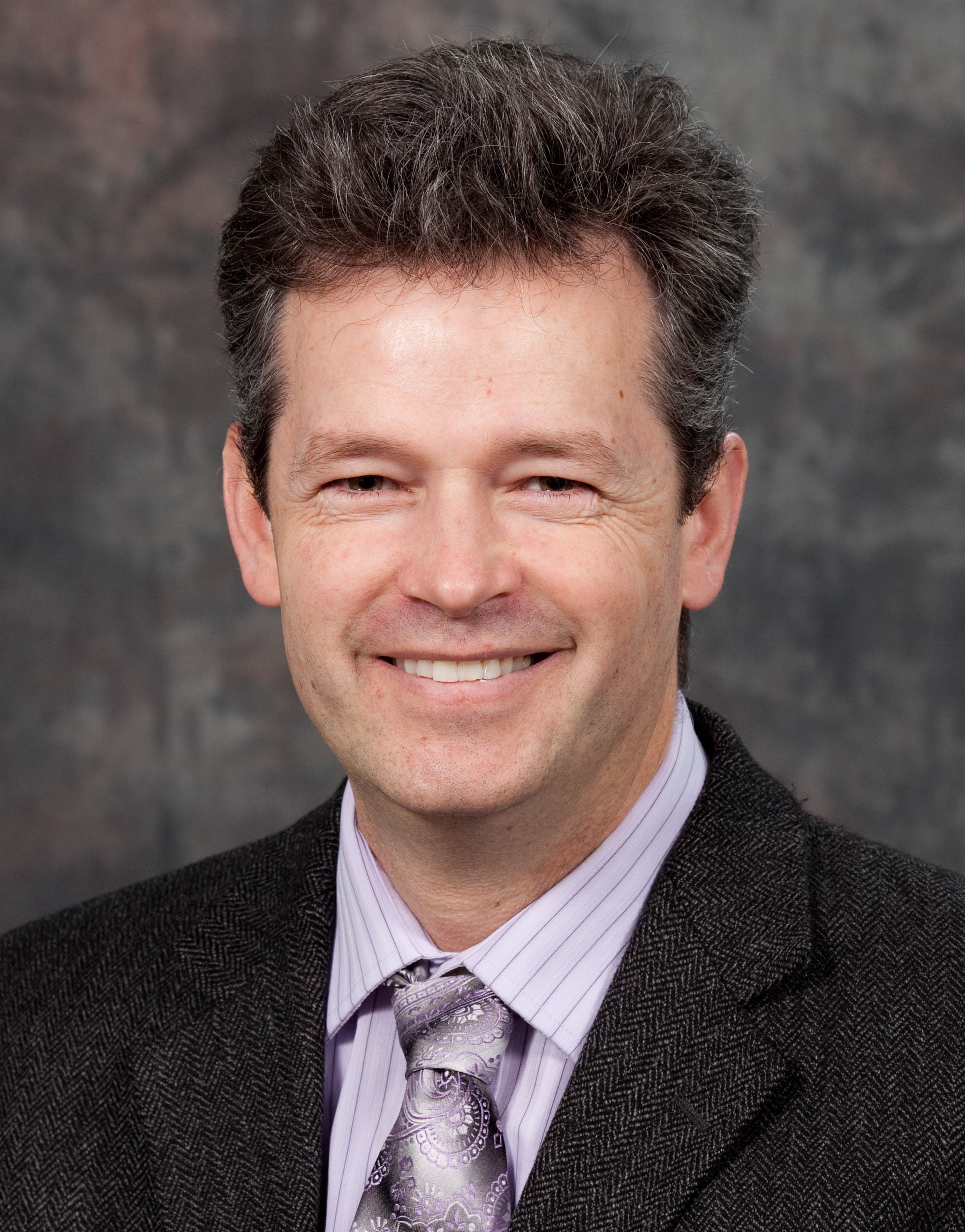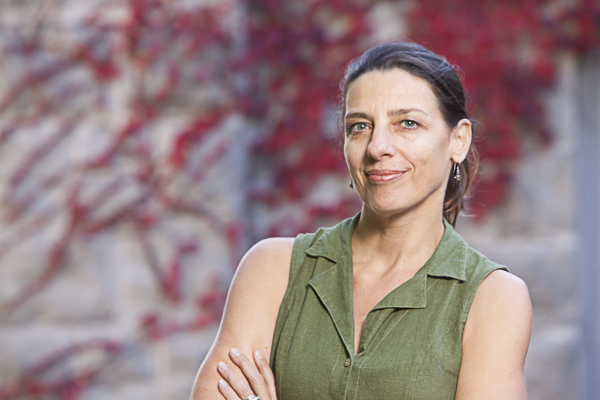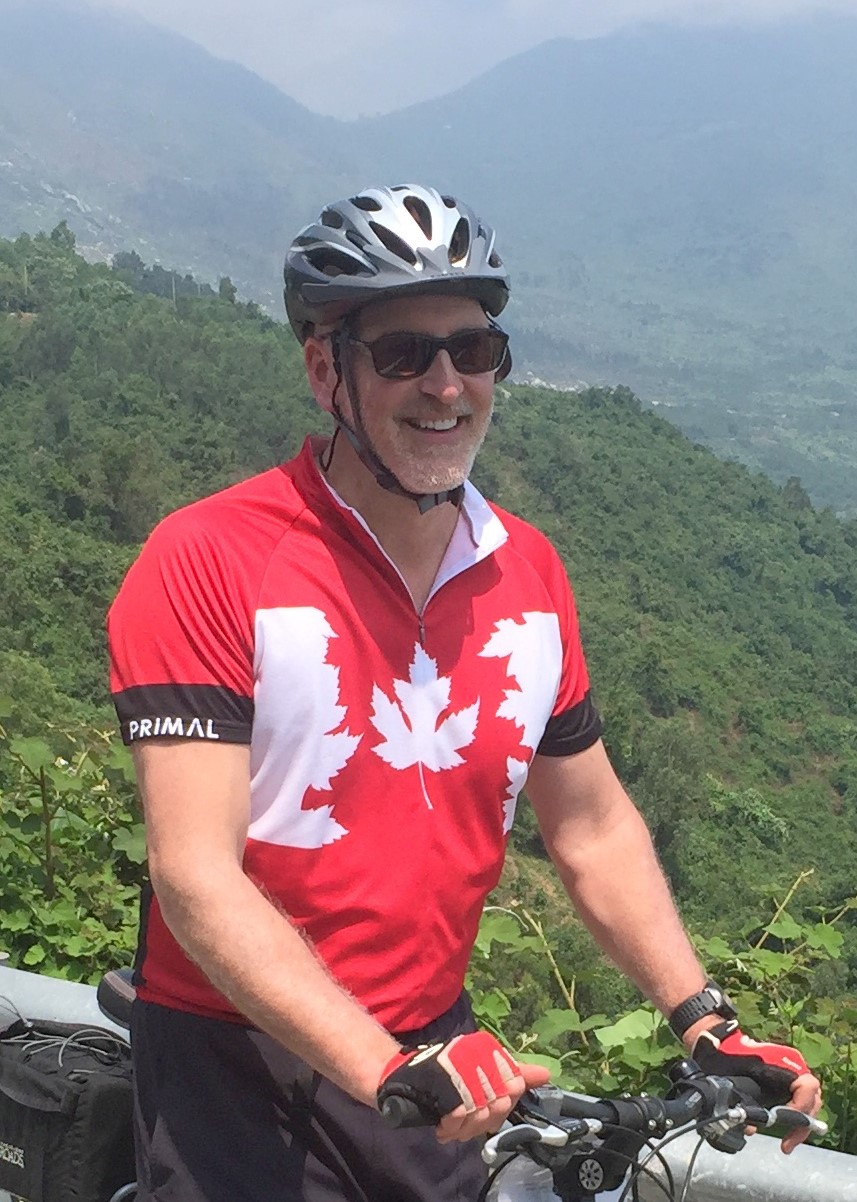We have 8 outstanding keynote speakers:
Kerry Courneya (University of Alberta, Canada)
"Physical activity behavior change interventions in cancer survivors: What’s cancer got to do with it?" |

Kerry S. Courneya, Ph.D., is a Professor and Canada Research Chair in Physical Activity and Cancer at the University of Alberta in Edmonton, Canada. He received his B.A. (1987) and M.A. (1989) in Kinesiology from Western University (London, Canada) and his Ph.D. (1992) in Kinesiology from the University of Illinois (Urbana-Champaign). He spent five years at the University of Calgary before moving to the University of Alberta in 1997. Prof. Courneya’s research program focuses on physical activity and cancer survivorship including how exercise may help cancer survivors prepare for treatments, cope with treatments, recover after treatments, and extend long term survival. His research interests include studying:
1) the effects of exercise on patient-reported outcomes, health-related fitness outcomes, and cancer outcomes
2) the determinants of exercise in cancer survivors
3) behavior change interventions to promote exercise in cancer survivors.
Click here to download presentation by Kerry S. Courneya
Denise de Ridder (Utrecht University, Netherlands)
"Healthy living made easier: The psychology of nudging''
|
 Denise de Ridder is professor of health psychology at Utrecht University and director of the self-regulation lab (www.selfregulationlab.nl). My research has been driven by the broad question of how people are able to regulate their own thoughts, actions, and emotions. Specifically, my associates and I have addressed questions related to the role of self-control, goal setting, planning, and emotion regulation in the achievement of personal goals in several personally relevant domains including health behavior. Across these diverse themes, my research has increasingly emphasized the interplay between impulsive and reasoned processes, which has become my main focus of research. An important area of research is nudging (choice architecture) that speaks to fast and intuitive thinking people typically engage in when deciding about health behavior.
Denise de Ridder is professor of health psychology at Utrecht University and director of the self-regulation lab (www.selfregulationlab.nl). My research has been driven by the broad question of how people are able to regulate their own thoughts, actions, and emotions. Specifically, my associates and I have addressed questions related to the role of self-control, goal setting, planning, and emotion regulation in the achievement of personal goals in several personally relevant domains including health behavior. Across these diverse themes, my research has increasingly emphasized the interplay between impulsive and reasoned processes, which has become my main focus of research. An important area of research is nudging (choice architecture) that speaks to fast and intuitive thinking people typically engage in when deciding about health behavior.
Click here to download presentation by Denise de Ridder
Paul Estabrooks (University of Nebraska Medical Centre, US)
"Dissemination, Implementation, Knowledge Translation, and Scale-up of Nutrition and Physical Activity Interventions in the Pursuit of a Public Health Impact" |
 Paul Estabrooks, Ph.D., is a Professor and the Harold M. Maurer Distinguished Chair of Public Health at the University of Nebraska Medical Center. He received his B.Sc. (1994-Physical Education) and M.Sc. (1996-Kinesiology) from the University of Calgary and his Ph.D. (1999) in Kinesiology from the University of Western Ontario. Dr. Estabrooks has spent his career in research positions that are integrated within community and health care organizations and has collaborated with health-service professionals to develop scalable and sustained interventions adapted from evidence-based principles—including work with Kansas Research and Extension (1999-2003), Kaiser Permanente-Colorado (2003-2007), Virginia Tech/Carilion Clinic (2007-2016), and the University of Nebraska Medical Center. His research focuses on understanding appropriate metrics to capture public health impact and examine progress towards health equity as it relates to physical activity, nutrition, and weight control. He currently is leading projects that focus on:
Paul Estabrooks, Ph.D., is a Professor and the Harold M. Maurer Distinguished Chair of Public Health at the University of Nebraska Medical Center. He received his B.Sc. (1994-Physical Education) and M.Sc. (1996-Kinesiology) from the University of Calgary and his Ph.D. (1999) in Kinesiology from the University of Western Ontario. Dr. Estabrooks has spent his career in research positions that are integrated within community and health care organizations and has collaborated with health-service professionals to develop scalable and sustained interventions adapted from evidence-based principles—including work with Kansas Research and Extension (1999-2003), Kaiser Permanente-Colorado (2003-2007), Virginia Tech/Carilion Clinic (2007-2016), and the University of Nebraska Medical Center. His research focuses on understanding appropriate metrics to capture public health impact and examine progress towards health equity as it relates to physical activity, nutrition, and weight control. He currently is leading projects that focus on:
- Systems change to support identification and engagement of patients for referral to weight loss interventions that can lead to, and sustain, clinically meaningful weight loss.
- Methods to increase participation of populations experiencing health disparities in community-based weight loss programs.
- Understanding implementation features that promote the use of adaptations of the Diabetes Prevention Program Lifestyle Intervention.
- Effective health professional training approaches to promote the adoption, implementation, and sustainability of nurse coordinator facilitated weight loss.
Click here to download presentation by Paul Estabrooks
Lucie Lévesque (Queens University, Canada)
"Truth and reconciliation in research: physical activity interventions with Indigenous communities" |
 Lucie Lévesque, Ph.D. is a Professor in the School of Kinesiology and Health Studies at Queen’s University (Kingston, Ontario). Her research program, which has been mainly funded by the Canadian Institutes of Health Research for the past 15 years, focuses on investigating physical activity and health promotion interventions, programs, practices, and policies in partnership with Indigenous peoples in Canada. A long-time member of the Kahnawake Schools Diabetes Prevention Project (KSDPP) research team, Dr. Lévesque’s work is founded on community engagement for the production and dissemination of action-oriented knowledge. Her research encompassing both Indigenous and mainstream/Western science approaches has informed the ways in which respectful and relevant research is conducted with Indigenous communities in Canada (e.g., KSDPP Code of Research Ethics; Canada’s Tri Council Policy Statement 2: Module 9 - Research Involving the First Nations, Inuit and Métis Peoples of Canada).
Lucie Lévesque, Ph.D. is a Professor in the School of Kinesiology and Health Studies at Queen’s University (Kingston, Ontario). Her research program, which has been mainly funded by the Canadian Institutes of Health Research for the past 15 years, focuses on investigating physical activity and health promotion interventions, programs, practices, and policies in partnership with Indigenous peoples in Canada. A long-time member of the Kahnawake Schools Diabetes Prevention Project (KSDPP) research team, Dr. Lévesque’s work is founded on community engagement for the production and dissemination of action-oriented knowledge. Her research encompassing both Indigenous and mainstream/Western science approaches has informed the ways in which respectful and relevant research is conducted with Indigenous communities in Canada (e.g., KSDPP Code of Research Ethics; Canada’s Tri Council Policy Statement 2: Module 9 - Research Involving the First Nations, Inuit and Métis Peoples of Canada).
Click here to download presentation by Lucie Lévesque
Cliona Ni Mhurchu (Auckland University, New Zealand)
"‘Reducio’: The Magical Potential of New Technologies to Deliver and Evaluate Nutrition Interventions" |
 Cliona is Professor of Population Nutrition at the National Institute for Health Innovation, University of Auckland. Her research programme examines the impact of population-level dietary interventions and policies, including food taxes/subsidies, front-of-pack nutrition labelling, healthier food reformulation, and restrictions on food marketing to children. Her current studies use a range of innovative technologies to deliver or evaluate interventions, including smartphone apps, a virtual supermarket, scanner sales data, and automated wearable cameras. Cliona is Director of the "Dietary Interventions: Evidence & Translation" (DIET) 5-year research programme, and is Deputy Director of the Healthier Lives National Science Challenge.
Cliona is Professor of Population Nutrition at the National Institute for Health Innovation, University of Auckland. Her research programme examines the impact of population-level dietary interventions and policies, including food taxes/subsidies, front-of-pack nutrition labelling, healthier food reformulation, and restrictions on food marketing to children. Her current studies use a range of innovative technologies to deliver or evaluate interventions, including smartphone apps, a virtual supermarket, scanner sales data, and automated wearable cameras. Cliona is Director of the "Dietary Interventions: Evidence & Translation" (DIET) 5-year research programme, and is Deputy Director of the Healthier Lives National Science Challenge.
Click here to download presentation by Cliona Ni Mhurchu
Panel Discussion:
"Evidence, challenges and lessons learnt from implementing a sugar tax" |
Dr Shu Wen Ng (University of North Carolina, USA)
Dr. Ng studies individual and household-level decisions about diet and activity behaviors made under monetary, time and biological constraints, within a broader environmental and policy context, and their resultant health impacts (focusing on obesity and nutrition-related chronic diseases). Dr. Ng uses interdisciplinary tools and approaches from economics, public policy, epidemiology, sociology and psychology, applying a variety of quantitative methods. Dr. Ng is involved in several studies that use ‘big-data’ on household food and beverage purchases alongside dietary intake and nutrition databases. She has used these data to evaluate several voluntary industry initiatives, as well as how regulatory policies such as taxation, quotas or nutrition labeling may impact consumer purchases, diet and nutritional outcomes, and alleviate or worsen health disparities. In addition, Dr. Ng has conducted secondary analyses of historical time-use data to estimate activity levels across all domains of daily living, and to identify trends and patterns within subpopulations. Her involvement in both areas of diet and physical activity has highlighted the existing gaps in current measurements, and the need for innovative approaches to better monitor changes to understand the shifting cultures of eating and moving worldwide and to evaluate efforts aimed at promoting effective and sustainable preventive health behaviors.
individual and household-level decisions about diet and activity behaviors made under monetary, time and biological constraints, within a broader environmental and policy context, and their resultant health impacts (focusing on obesity and nutrition-related chronic diseases). Dr. Ng uses interdisciplinary tools and approaches from economics, public policy, epidemiology, sociology and psychology, applying a variety of quantitative methods. Dr. Ng is involved in several studies that use ‘big-data’ on household food and beverage purchases alongside dietary intake and nutrition databases. She has used these data to evaluate several voluntary industry initiatives, as well as how regulatory policies such as taxation, quotas or nutrition labeling may impact consumer purchases, diet and nutritional outcomes, and alleviate or worsen health disparities. In addition, Dr. Ng has conducted secondary analyses of historical time-use data to estimate activity levels across all domains of daily living, and to identify trends and patterns within subpopulations. Her involvement in both areas of diet and physical activity has highlighted the existing gaps in current measurements, and the need for innovative approaches to better monitor changes to understand the shifting cultures of eating and moving worldwide and to evaluate efforts aimed at promoting effective and sustainable preventive health behaviors.
Click here to download presentation by Shu Wen Ng
Dr Tom Warshawski (University of British Columbia, Canada)

Tom Warshawski practices as a consultant pediatrician in Kelowna, British Columbia, and is the former head of pediatrics at the Kelowna General Hospital. Dr Warshawski is an associate clinical professor of Pediatrics with the University of British Columbia, is a member of the Heart and Stoke Foundation Compass Committee and he is the current chair of the Childhood Obesity Foundation (COF). He is a past member of the Healthy Active Living committee of the Canadian Pediatric Society, a past president of the BC Pediatric Society and a past president of the Society of Specialist Physicians and Surgeons of BC.
Dr. Warshawski spearheaded the development of Sip Smart and is one of the leaders in the development of Screen Smart. He was a co-leader in the successful initiative to disseminate both programs across Canada as part of a coalition funded by the Canadian Partnership Against Cancer’s CLASP fund. He is a PI of the LiGHT project and as chair of the COF he was a leader in overseeing the implementation of MEND and Shapedown programs across British Columbia. Dr Warshawski is co-chairman of the Stop Marketing to Kids Coalition which is working with the Federal Government to enact meaningful legislation to stop the marketing of junk food and drink to Canadian children. As co-chairman of both the National Sugary Drink Reduction Group and of the British Columbia Rethink Sugary Drinks Coalition he has been active in advocating for sugary drink taxation at both a provincial and national level. For his efforts in promoting Healthy Active Living in children and youth, Dr Warshawski has been the recipient of the Judith Hall Award from the BC Pediatric Society, a Certificate of Merit from the Canadian Pediatric Society and a Special Achievement Award from the American Academy of Pediatrics.
Click here to download presentation by Tom Warshawski
Harry Rutter (Oxford, UK)
 Harry Rutter is a public health physician based in Oxford, England. He is a senior clinical research fellow at the London School of Hygiene and Tropical Medicine, a senior academic adviser to Public Health England, and an adjunct professor of public health at both University College Cork, Ireland, and the Western Norway University of Applied Sciences. He was the founder director of the National Obesity Observatory for England, chaired the Programme Development Group (PDG) for guidance on measures to promote walking and cycling for the National Institute of Health and Clinical Excellence (NICE), led the development of the National Child Measurement Programme childhood obesity surveillance system, and sat on the management group of the Foresight Obesities project.
Harry Rutter is a public health physician based in Oxford, England. He is a senior clinical research fellow at the London School of Hygiene and Tropical Medicine, a senior academic adviser to Public Health England, and an adjunct professor of public health at both University College Cork, Ireland, and the Western Norway University of Applied Sciences. He was the founder director of the National Obesity Observatory for England, chaired the Programme Development Group (PDG) for guidance on measures to promote walking and cycling for the National Institute of Health and Clinical Excellence (NICE), led the development of the National Child Measurement Programme childhood obesity surveillance system, and sat on the management group of the Foresight Obesities project.
Harry was a founder member of the steering committee of the European Health Enhancing Physical Activity network. He sits on three WHO Europe steering groups, those for: the Cycling and Walking Health Economic Appraisal Toolkit (WHO HEAT); the European Health and Environmental Economics Network (EHEN); and the Child Obesity Surveillance Initiative (COSI). He has a broad interest in the relations between all aspects of transport, sustainability, built environment and health, in particular the health impacts of walking and cycling. His main professional focus is on the application of complex systems thinking to public health policy formulation, implementation, and research.
Click here to download presentation by Harry Rutter